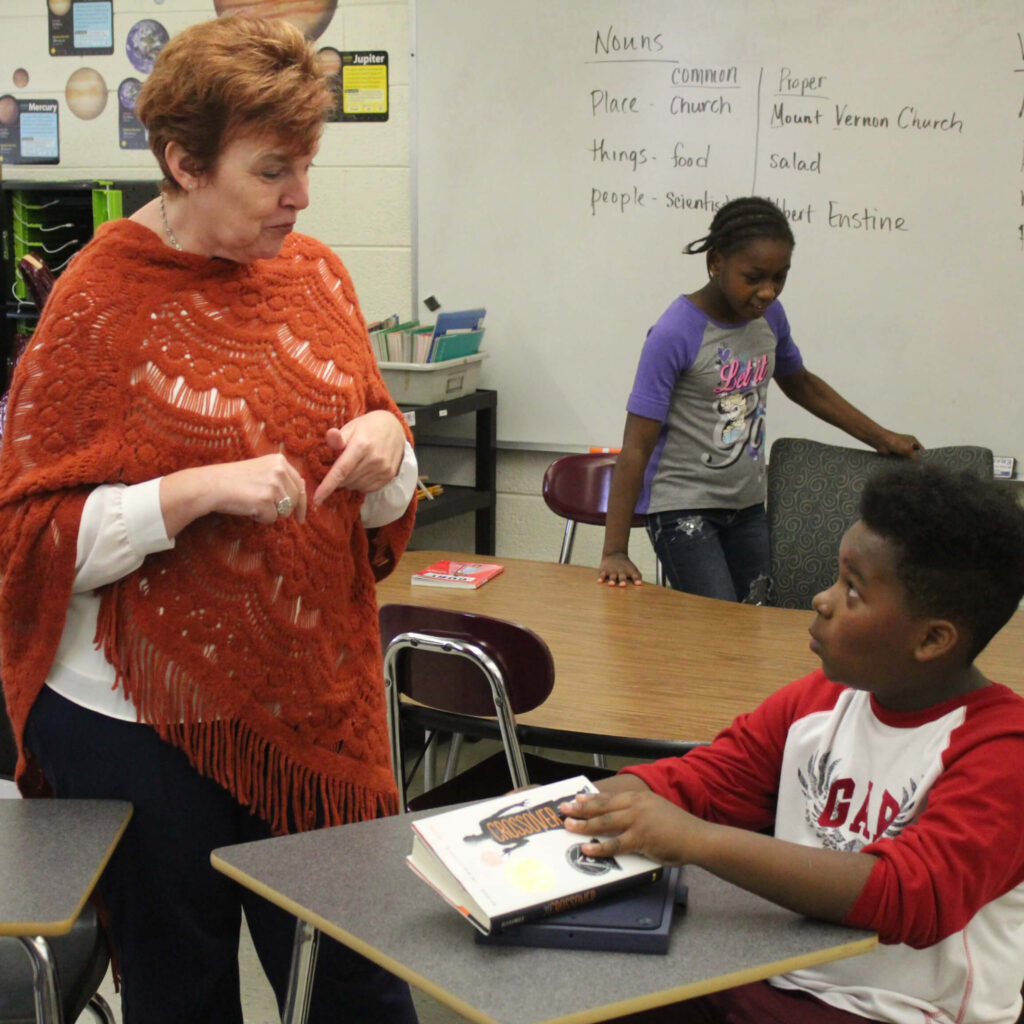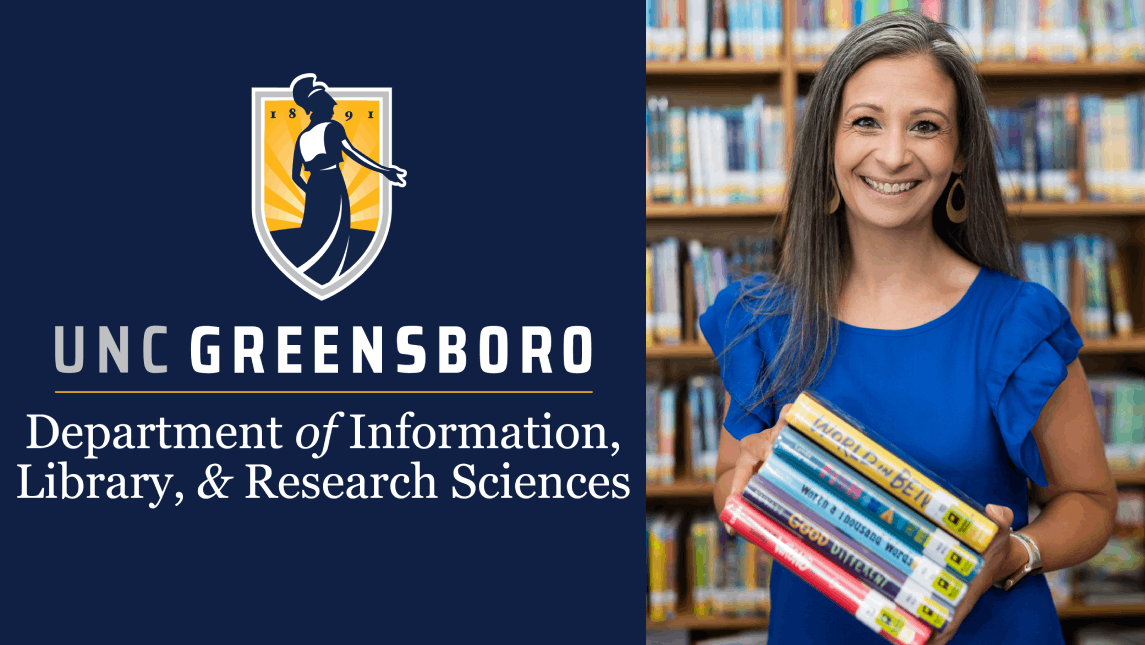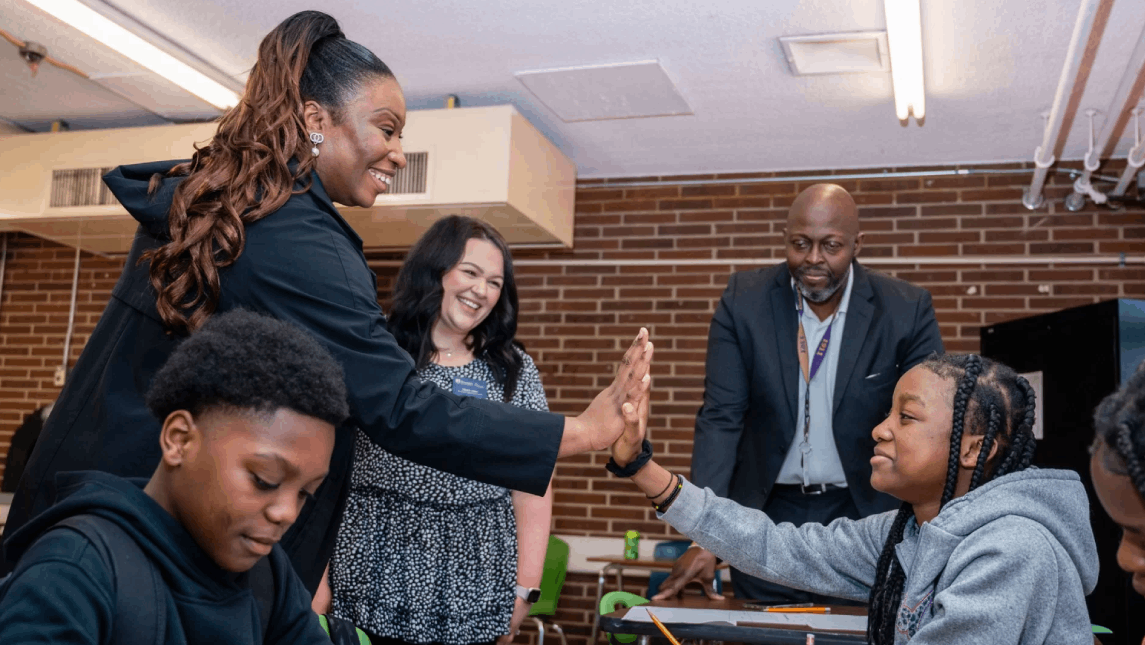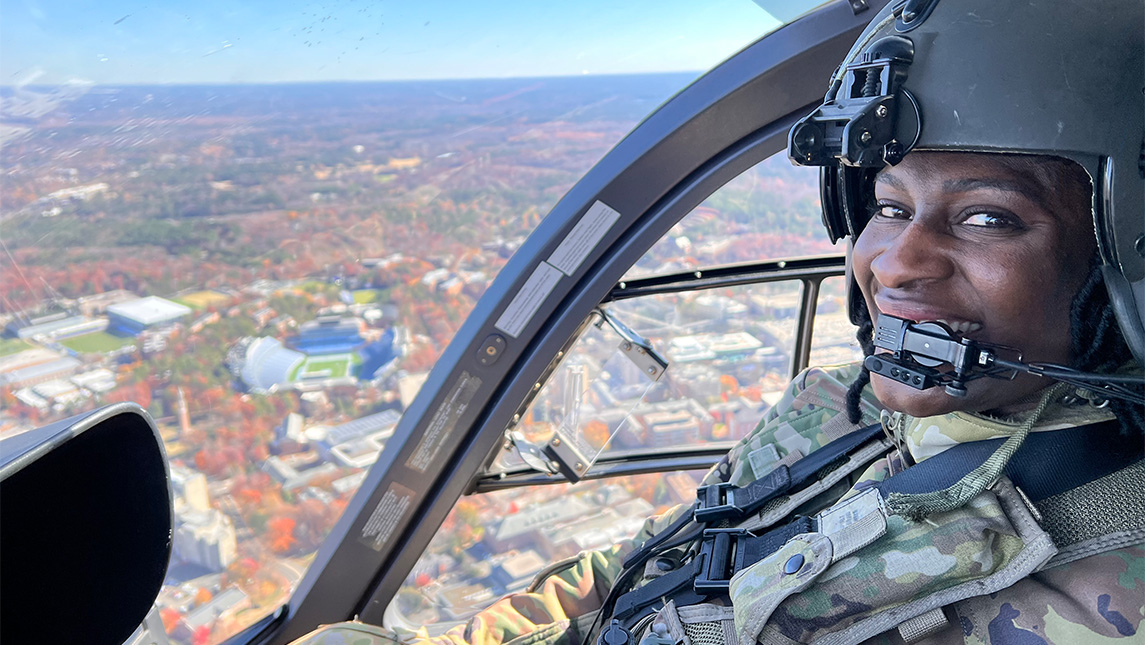 Dr. Gay Ivey, the William E. Moran Distinguished Professor in Literacy at the UNC Greensboro School of Education, recently completed her term as President of the Literacy Research Association (LRA). LRA is the leading professional organization for individuals who share an interest in the development of research and theory associated with literacy, with an aim of helping to shape practice and policies in positive ways.
Dr. Gay Ivey, the William E. Moran Distinguished Professor in Literacy at the UNC Greensboro School of Education, recently completed her term as President of the Literacy Research Association (LRA). LRA is the leading professional organization for individuals who share an interest in the development of research and theory associated with literacy, with an aim of helping to shape practice and policies in positive ways.
Ivey’s presidential term began in December 2017 and ended in December 2018, culminating with the presidential address at the 68th Annual Conference of LRA in Indian Wells, California. Ivey’s address was titled, “Engaging Possibilities: Reinvigorating the Call for Research on Reading.” By tracing the evolution of her own research, which has centered primarily on reading motivation and engagement in middle grades classrooms, she argued for a renewed commitment for classroom-based studies of reading instruction that centralize students’ experiences when they are given opportunities to read texts that are personally and socially significant to them.
Ivy’s early research questions about what motivates children to read led her to design interventions aimed at increasing student reading engagement. In her presidential address, Ivey shared the breadth and range of development — not only academic, but also personal, social and emotional — that students experienced when provided books with characters and social worlds that resonated with them. These developments progressed when students were given time to read and talk to each other in school about what they learned, and having freedom from assignments that undermined their sense of autonomy in reading.
Ivey found that students reported of improving relationships with friends and family members, becoming more empathetic, regulating their own behavior and emotions, and developing a sense of social agency. With these findings in mind, she recommended that further studies of readers and communities of readers who are actually engaged, rather than just compliant, would help us expand the full range of what we mean by “comprehension.” The children in Ivey’s research (most recently in collaboration with Peter Johnston, Professor Emeritus at The University at Albany), certainly comprehended the “story” in the books they selected, but more importantly, they used the narratives as tools to help them understand themselves and others.
When students are engaged in what they are reading, they exhibit highly strategic behavior, including using strategies they have not been taught, such as rereading entire texts because of high investment and a need to further understand, and recruiting other students to read in order to have conversations about difficult texts and topics. Ivey argues that there is much to learn about what teachers can do to catalyze student engagement with reading and with each other, as opposed to simply teaching skills and strategies toward mastery, particularly trying to do so when students are not engaged. A paper based on Ivey’s LRA presidential address will be published in the 2019 volume of Literacy Research: Theory, Method, and Practice.
About Dr. Gay Ivey
Ivey has a long history of involvement with the Literacy Research Association. She became a member in 1993, as a first-year doctoral student at the University of Georgia, when the organization was known as the National Reading Conference (NRC). Since that time, it has been her primary professional home and her top choice for sharing and learning about new research in literacy. Over the years, she served as a Program Area Chair, Chair of the LRA Research Committee, and as a member of various other committees before being elected by the membership as Vice President in 2015. As President-Elect in 2017, she served as Chair of the 67th Annual Conference.
Now having completed years of rewarding, yet time- and energy-consuming service to the Literacy Research Association, Ivey looks forward to digging in further to research on engaged readers and writers and on how to help transform reading and writing classrooms in North Carolina to produce positive consequences for the academic, relational, and emotional lives of children. She is presently thrilled to be working side-by-side with teachers and children at the Moss Street Partnership School — a place where she is regularly spotting engaged readers — as she seeks to understand the questions they share and to co-develop some questions on which they will all work together over the next several years. In addition, this semester she is teaching the first course in a master’s cohort program in Literacy designed specifically for the Moss Street Partnership School and delivered on-site at the school.
About the Literacy Research Association
With roots dating back to the 1950’s, LRA is now comprised of approximately 1600 members coming primarily from North America, but also from around the world. LRA produces two major journals: Journal of Literacy Research and Literacy Research: Theory, Method, and Practice. The yearly conference of LRA routinely draws approximately 1200 attendees.


